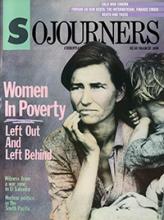Several years ago a schoolteacher assigned to visit children in a large city hospital received a routine call requesting that she visit a particular child. She took the boy's name and room number and was told by the teacher on the other end of the line, "We're studying nouns and adverbs in his class now. I'd be grateful if you could help him with his homework, so he doesn't fall behind the others."
It wasn't until the visiting teacher got outside the boy's room that she realized it was located in the hospital's burn unit. No one had prepared her to find a young boy horribly burned and in great pain. She felt that she couldn't just turn around and walk out, so she awkwardly stammered, "I'm the hospital teacher, and your teacher sent me to help you with nouns and adverbs."
The boy was in such pain he barely responded. She stumbled through his English lesson, ashamed at putting him through such a senseless exercise. The next morning a nurse on the burn unit asked her, "What did you do to that boy?"
Before she could finish a profusion of apologies, the nurse interrupted her: "You don't understand. We've been very worried about him. But ever since you were here yesterday, his whole attitude has changed. He's fighting back, responding to treatment--it's as though he's decided to live."
The boy later explained that he had completely given up hope until he saw that teacher. It all changed when he came to a simple realization. With joyful tears, he expressed it this way: "They wouldn't send a teacher to work on nouns and adverbs with a dying boy, would they?"
Read the Full Article

